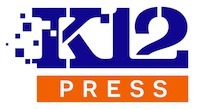A school’s online presence can significantly impact its visibility and engagement with the community. Search Engine Optimization (SEO) is crucial for improving how easily prospective students, parents, and faculty can find your school online. With WordPress’s robust capabilities and K12Press’s tools, schools have a distinct advantage in optimizing their websites for search engines. Here’s how to leverage these tools to boost your school website’s SEO.
Understanding SEO for School Websites
SEO involves adjusting various aspects of your website so that search engines can understand and rank it higher in search results. For schools, this means being the first option that pops up when prospective students and parents are looking for education opportunities in your area.
Key Strategies for SEO Success
1. Keyword Optimization: Identify keywords that prospective students and parents are likely to use when searching for educational opportunities. Incorporate these keywords naturally into your site’s content, including titles, headings, and meta descriptions.
2. Quality Content Creation: Regularly update your website with high-quality, relevant content. This could include blog posts about school events, educational programs, and faculty achievements. WordPress excels in handling dynamic content, which is integral to maintaining an active and engaging website.
3. Optimize Website Structure: Ensure your website has a clear, logical structure that search engines can easily navigate. Use WordPress to create a user-friendly layout with well-organized menus and subpages.
4. Mobile Optimization: With the increasing use of mobile devices to access the internet, having a mobile-optimized website is crucial. WordPress sites are generally responsive, meaning they adapt to the screen size of the device being used, which is a significant plus for SEO.
5. Utilize Multisite Networks: For larger educational institutions, WordPress Multisite allows you to manage multiple sites, such as those for different schools or departments, from a single dashboard. This is beneficial for creating a cohesive SEO strategy across all branches of your institution.
6. Build Quality Backlinks: Encourage other reputable sites to link to your school website. Backlinks from trusted sources can significantly boost your site’s authority and ranking.
7. Leverage Social Media: Integrate your social media efforts with your website by including social media sharing buttons and regularly posting links to your website content on your school’s social media pages.
Monitoring and Improving
Use Analytics: Track your website’s performance using tools like Google Analytics. Monitor metrics such as page views, bounce rate, and average session duration to understand what works and where there is room for improvement.
Conclusion
Improving your school website’s SEO is a continual process that involves regular updates and adjustments. With WordPress and K12Press, schools have powerful tools at their disposal to significantly enhance their online visibility and effectively engage with their community.
Ready to elevate your school’s online presence? Visit K12Press for expert tips and tools tailored to optimizing your educational website for search engines: Visit K12Press.














